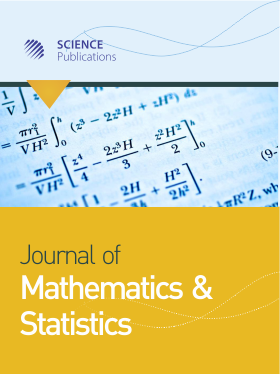Prediction in Complex Dimension Using Kolmogorov's Set of Axioms
Abstract
Problem statement: The five basic axioms of Kolmogorov define the probability in the real set of numbers and do not take into consideration the imaginary part which takes place in the complex set of numbers, a problem that we are facing in many engineering systems. Approach: Evaluate the complex probabilities by considering supplementary new imaginary dimensions to the event occurring in the "real" laboratory. The Kolmogorov's system of axioms can be extended to encompass the imaginary set of numbers and this by adding to the original five axioms of Kolmogorov an additional three axioms. Hence, any experiment can thus be executed in what is now the complex set C which is the sum of the real set R with its corresponding real probability and the imaginary set M with its corresponding imaginary probability. Results: Whatever the probability distribution of the random variable in R is, the corresponding probability in the whole set C is always one, so the outcome of the random experiment in C can be predicted totally. Conclusion: The result indicated that, the chance and luck in R is replaced now by total determinism in C. This is the consequence of the fact that the probability in C is got by subtracting the chaotic factor from the degree of our knowledge of the system.
DOI: https://doi.org/10.3844/jmssp.2010.116.124

- 7,047 Views
- 3,786 Downloads
- 28 Citations
Download
Keywords
- Kolmogorov’s axioms
- random variable
- probability
- real set
- imaginary set
- complex set
- complex number
- probability norm
- degree of knowledge of the system
- chaotic factor
- Bernoulli experiment
- binomial distribution
- Gaussian or normal distribution
- density function
- Young’s modulus
